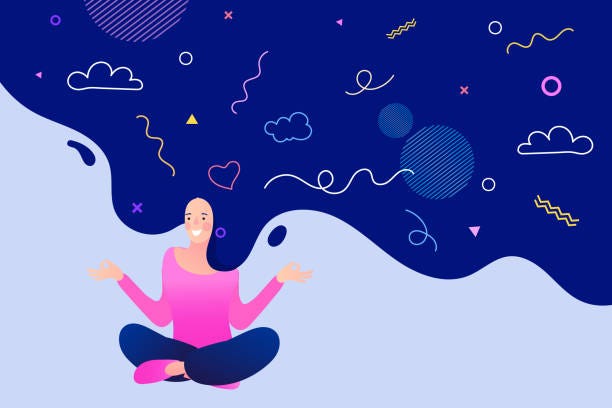Book Appointment Now
Maladaptive Daydreaming: Feeling Sad When You Share About Your Daydreaming Experiences?

Today, I’ll be addressing why you might feel sad when sharing your daydreaming (DD) experiences. I came across a question in a Facebook group where someone mentioned feeling a profound sadness every time they talked about their DD experiences, even in online forums. So, let’s explore why this sadness often accompanies sharing our stories.
Sharing your DD experiences is a positive thing. It’s a way of acknowledging that there’s an issue affecting you. When we admit that something is a problem, we bring it into our awareness. More often than not, when we ignore or suppress this issue, we bury the accompanying sadness deep within ourselves. But when we start sharing, our minds begin reconnecting with the impact of DD on our lives.
When you open up about your experiences, you become acutely aware of how daydreaming has affected your life. You start recognizing the impact it has had, and that can be quite disheartening. It’s your mind’s way of telling you that you’ve lost a significant part of your life due to excessive daydreaming. It evokes a sense of loss, and it’s completely normal to feel sad when you realize the extent of that loss.
Consider it as similar to discovering a cluttered room or a pile of dirty laundry in your home. When you don’t see it, it’s not a problem, but it’s still there. However, when you do see it, you recognize that something needs to be done, and it becomes the focus of your attention. Sharing your DD experiences brings that issue to the forefront of your consciousness.
It’s important to understand that the sadness you’re feeling after sharing your experiences is not a negative thing. It’s a crucial step in your journey towards addressing the issue. It’s your mind’s way of communicating that you risk losing more if you don’t take action. This sadness has likely been there all along, buried beneath the surface because you either suppressed your story or didn’t have the space to share it.
So, rather than viewing this sadness as a setback, see it as a wake-up call. It’s a signal that you need to work on yourself, take control of your excessive daydreaming, and reclaim the life it has been consuming. Sharing your experiences is a vital step in this process, and the accompanying sadness is a sign that you’re taking the first steps towards positive change.
Note from the Author
If you’re ready and you’d like my help with overcoming and managing maladaptive daydreaming without spending years in therapy, then you can book a FREE BREAKTHROUGH CALL with me HERE. Happy healing 💙💙. Feel free to share and comment! Use this information with caution, it comes from my own thoughts & bias, experiences and research😊.







